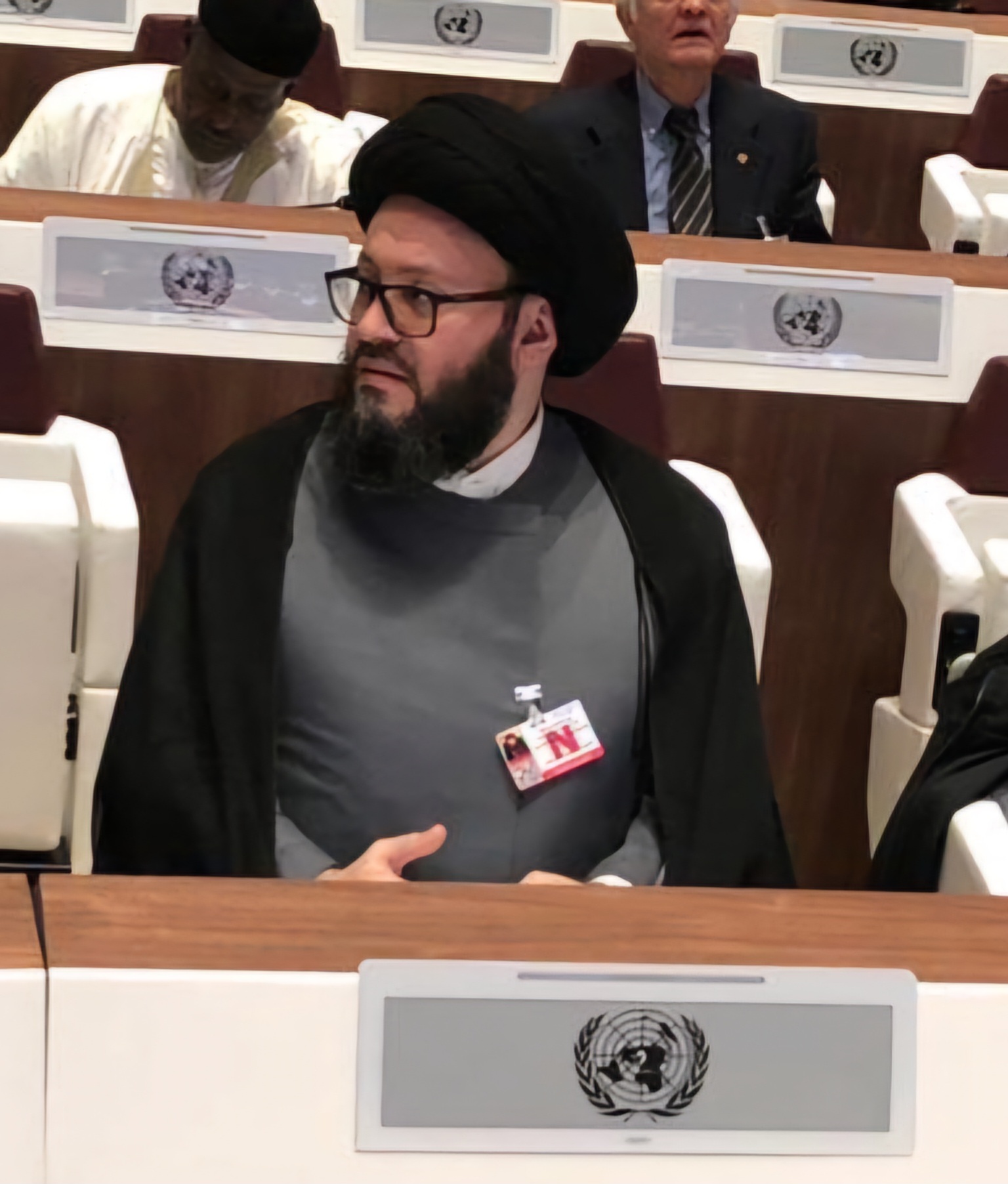• القسم الرئيسي : لغات أخرى .
• القسم الفرعي : English .
• الموضوع : The scholar, Mohamad Ali El Husseini Nuclear weapons and the Religious position .
The scholar, Mohamad Ali El Husseini Nuclear weapons and the Religious position

|
Nuclear weapons and the Religious position
The scholar, Mohamad Ali El Husseini
In an era characterized by the advancement of technology and a feverish arms race, the question arises about the position of Islamic law on nuclear weapons, which carry within them the capabilities of enormous destruction. Islam, the religion of mercy and peace, sets rules and principles that maximize the value of human life, urging the population of the earth with goodness and peace. This sober position is evident in the verses of the Holy Qur’an and the Sunnah of the Prophet, which call for the rejection of violence and destruction and forbid everything that would lead to the destruction of humans and the environment. Reviving and rebuilding: pillars of Islamic law. Emphasizing the value of life, the verse “And whoever saves a life, it is as if he had saved the life of all mankind” came as conclusive evidence of the virtue of reviving a soul and the prohibition of taking it unjustly. This concept lays a solid foundation for a legitimate position towards nuclear weapons, considering its production and use as a clear threat to this great virtue. Islamic law calls for the reconstruction of the earth and the exploitation of its resources in a way that serves humanity and achieves the common good. There is no doubt that nuclear weapons stand in contrast to these principles. Islam is a religion that seeks to achieve world peace, and encourages the establishment of human ties on the basis of acquaintance, harmony, and peaceful coexistence, as God Almighty said: “O mankind, We created you from a male and a female and made you into peoples and tribes that you may know one another.” In this context, the Religious rejection of nuclear weapons comes as an affirmation of these principles, and as a call for understanding and cooperation between nations instead of arming and threatening destruction. The Religious position on nuclear weapons. Islamic law is clearly based on the rejection of the manufacture, production, and use of nuclear weapons, as it considers this to be a form of self-harm and collective destruction, which is forbidden by law. “Whoever kills a soul unless for a soul or for corruption on earth, it is as if he had killed all of mankind” is a noble verse that carries within it a categorical rejection of all forms of mass murder and mass destruction, including nuclear weapons. Therefore, the use of this weapon is considered a departure from the lofty principles of Islam and a violation of the basic human rights to life and security.
Bottom line: It is worth contemplating the initial position of Islamic law that rejects nuclear weapons, which emerges from the values of revitalization and rebuilding of the earth, and the pursuit of peace and peaceful coexistence among nations. Islam’s call to self-preservation “And We have honored the children of Adam” and “populating the earth is a legitimate goal” and “do not corrupt the earth after it has been set in order” is a call to all of humanity, to avoid paths of destruction and to work together to build a future of goodness and peace for all. Let us make these principles a beacon to guide us in every decision and action, especially with regard to nuclear weapons and other means of mass destruction. |
• المصدر : http://www.arabicmajlis.com/subject.php?id=2607
• تاريخ إضافة الموضوع : 2024 / 06 / 21
• تاريخ الطباعة : 2025 / 02 / 7